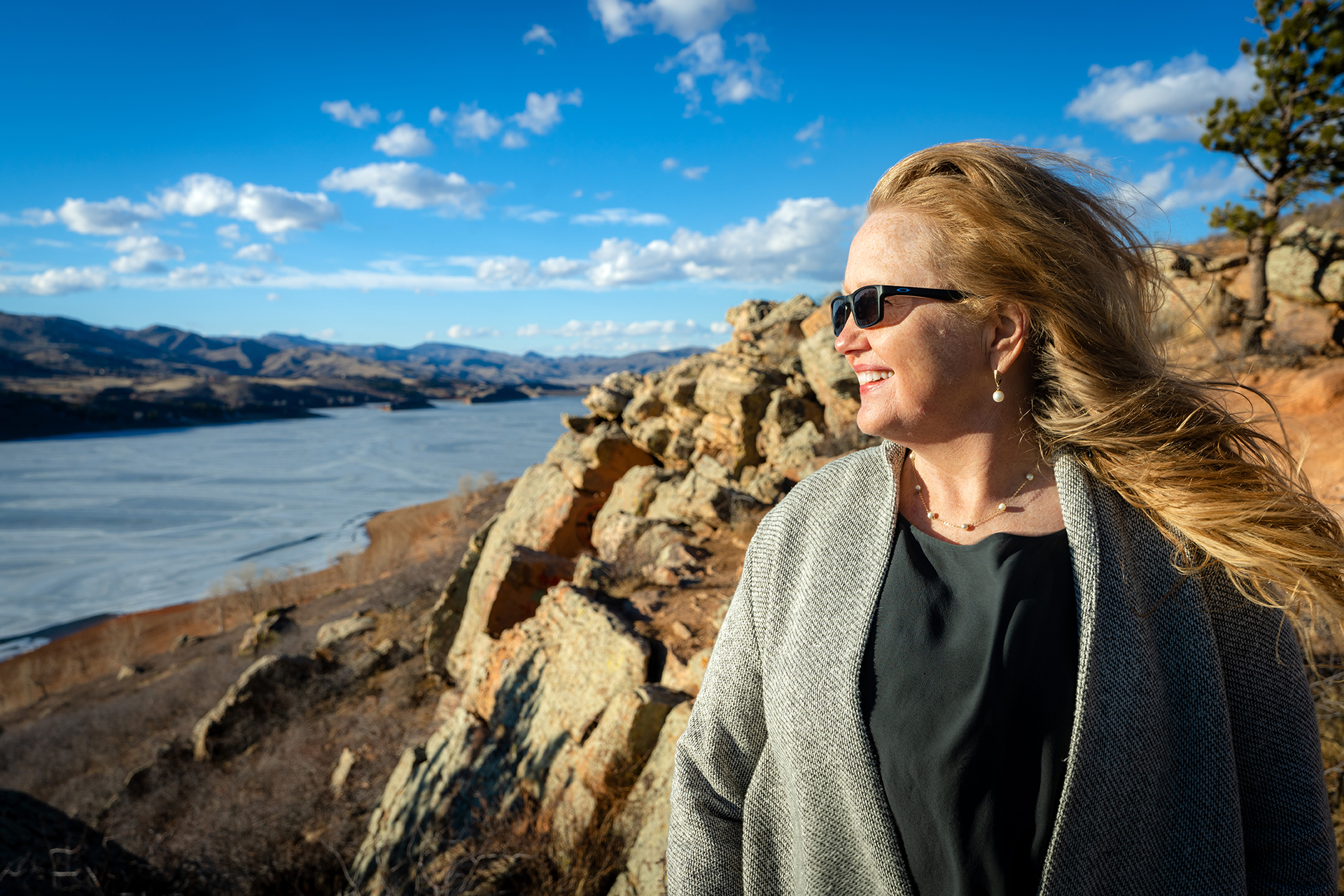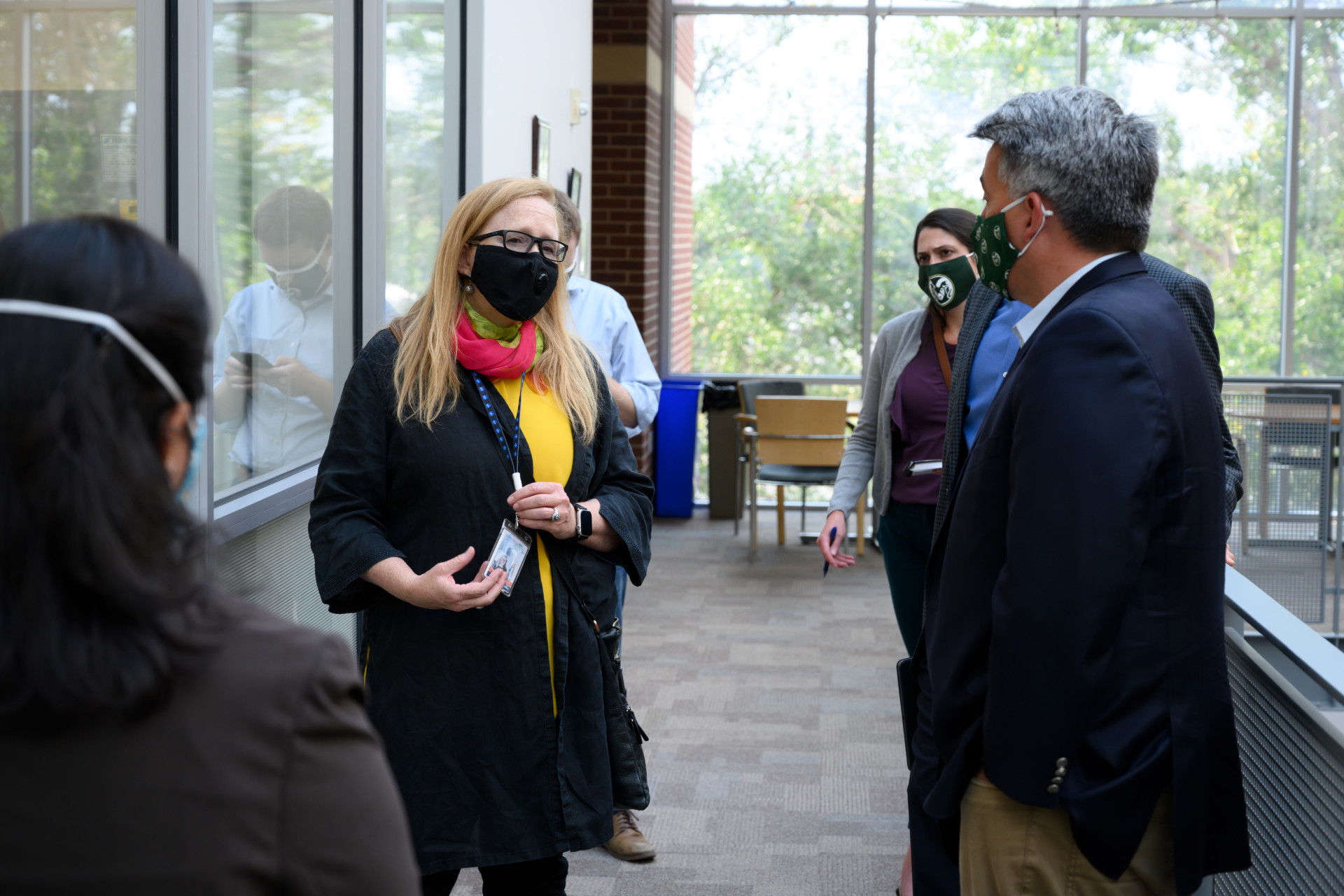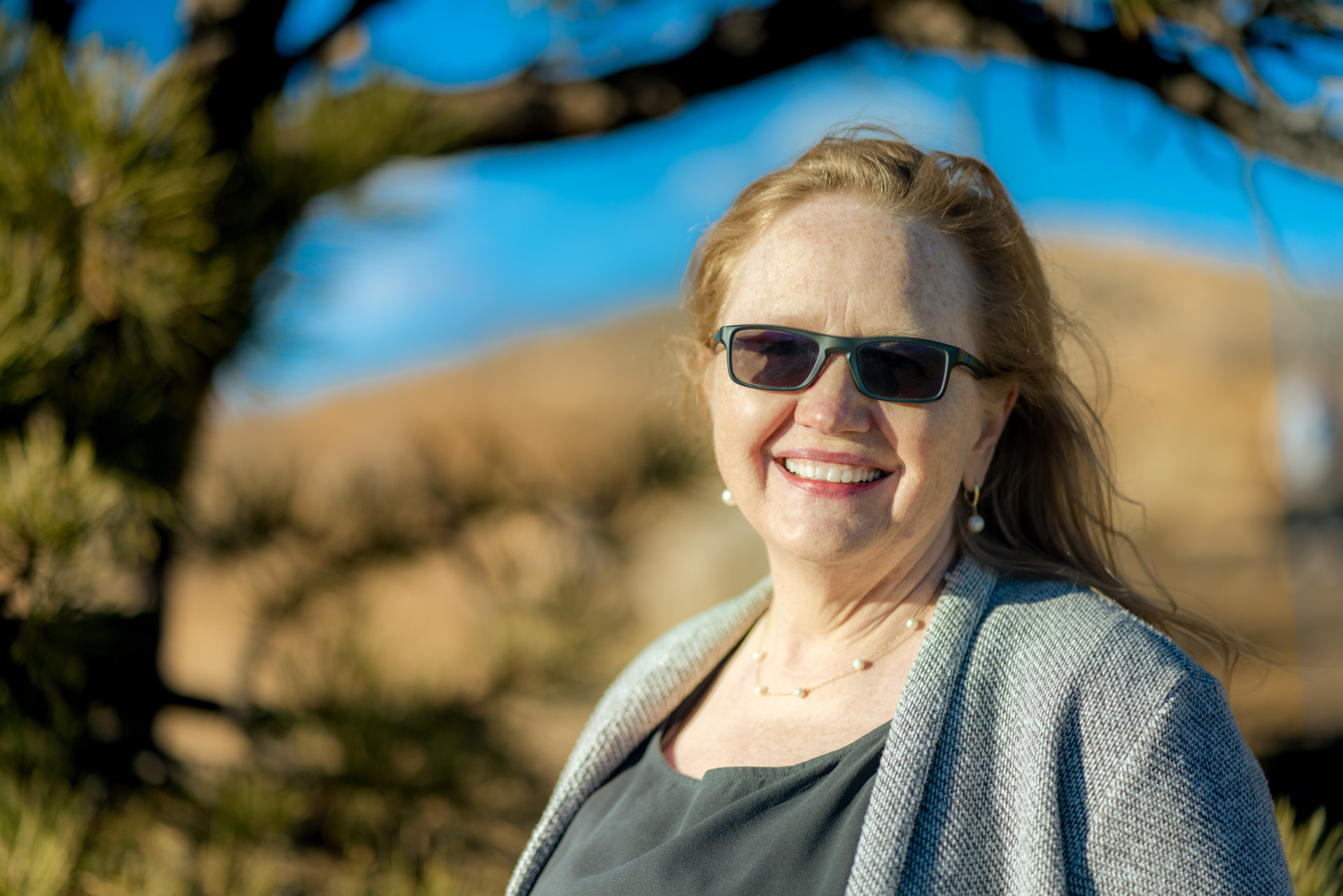Original story by David Kelly, media relations director, University of Colorado Anschutz Medical Campus. CSU’s Mary Guiden, science writer, contributed new content for the story.

Dr. Heather Pidcoke, chief medical research officer. Photo by Joe A. Mendoza/CSU Photography
Before Colorado State University made the decision to move to remote teaching, learning and working in March 2020, Dr. Heather Pidcoke, chief medical research officer, helped update the University’s pandemic plan for the Office of the Vice President for Research. She worked with research associate deans in all eight colleges to create a plan for a possible shutdown of in-person classes and non-essential operations. Pidcoke also worked with scientists to figure out regulatory requirements as they retooled research projects to help with the pandemic.
By August, she was leading a Rapid Response Team that met daily to review data and other information collected on campus related to the coronavirus efforts.
She was also dealing with symptoms of a return of a cancer that had been in remission for years.
First diagnosed with follicular lymphoma in 2014, she went through treatment, including chemotherapy, and the cancer went into remission. Unfortunately, the lymphoma returned in 2018 and, again, last year, during the coronavirus pandemic.
She decided to participate in a new clinical trial at the University of Colorado Anschutz Medical Campus and was among the first patients to receive an innovative cellular immunotherapy treatment in Fall 2020.
CAR-T cells – chimeric antigen receptor T cells – are genetically engineered to fight stubborn cancers. These cells are infused into patients like Pidcoke with difficult to treat or frequently recurring cancers at UCHealth University of Colorado Hospital and at other leading hospitals and health systems across the country.
Pidcoke said she did not expect the cancer to return as soon as it did last year.
“The fact that the cancer came back so soon was hard to deal with,” she said. “Having gone through chemotherapy when I was first diagnosed with follicular lymphoma, I wasn’t sure what other therapies might be available.”
Initially, Pidcoke and her oncologist, Dr. Manali Kamdar, an associate professor of medicine at the University of Colorado School of Medicine, decided to watch and wait. But in July 2020, Pidcoke developed symptoms related to the cancer and began to explore treatment options with her doctor.
Pidcoke shared the news about the cancer recurrence with CSU Vice President for Research Alan Rudolph and Christa Johnson, associate vice president for research. She also said it wasn’t going to stop her from continuing pandemic-related work.
“I let them know I’d love to keep working, even when I eventually had to go into the hospital for two weeks to be monitored during the clinical trial,” she said.
They developed a contingency plan, putting Pidcoke’s husband, Bernard Krause, in charge to make the call to CSU if Pidcoke’s symptoms or condition worsened.
“We had a plan, but the really great thing was we didn’t need it,” she said.
A leader on campus during the pandemic

Dr. Pidcoke describes work on COVID-19 to then U.S. Sen. Cory Gardner in August 2020. Photo by William A. Cotton/CSU Photography
With her personal health care plan in place, Pidcoke could concentrate on the University’s plans for responding in real time to data gathered through surveillance testing of facilities and personnel on the CSU campuses.
“The Rapid Response Team reviews data and operational efforts related to the comprehensive COVID-19 testing program at CSU that starts with wastewater analysis all the way through to public health actions,” she said. “The group then considers whether the information has implications for ongoing efforts and if there are recommendations that need to be passed on to the Pandemic Preparedness Team and University leadership.”
This group includes not only clinical, scientific, regulatory and data analysis experts, but also staff and leaders from Housing & Dining Services, fraternities and sororities, Facilities Management and the Office of the General Counsel, among others.
Pidcoke described the team as an incredible collection of talented, knowledgeable and dedicated people who routinely worked weekends and after hours during the fall semester.
“Their work ethic and contributions were incredible,” she said.
‘Faith in science’
Heading into last summer, Kamdar told her about the clinical trial and Pidcoke quickly enrolled.
“It takes courage and it takes a lot of faith in science to do this,” Kamdar said. “And I think her medical background helped.”
Pidcoke knew of CAR-T cell therapy. She also knew it was reserved for the most difficult cases.
“As a surgical resident, I treated patients, and as a researcher, I worked on things that affected patients, but it is different being a patient,” she said. “As a patient, I benefited from all the patients who have volunteered for clinical studies in the past. I have dedicated my life to research and I think it is important to take an active part in it.”
Working from a hospital bed
Pidcoke earns a living with her mind, so potential neurological damage weighed heavily on her.
“You meet those trepidations with prayer, trust in science, and resolve,” she said. “I prayed for my brain to be protected.”
She checked into UCHealth in late September for a two-week stay. She was given Benadryl to tamp down side effects, then was infused with the CAR-T cells.
“You meet those trepidations with prayer, trust in science, and resolve. I prayed for my brain to be protected.”
— Dr. Heather Pidcoke
The next day, she was working again, leading meetings as she’d done since the beginning of the pandemic, just this time from her hospital bed.
Pidcoke put a work schedule on her door – after first checking with nurses, aides and other staff – to ensure she had minimal interruptions at certain times of the day. Some days, she worked until 6:30 p.m., all while undergoing treatment.
“The medical team would work around my schedule,” she said. “It was really kind of them, and very helpful for me to be doing something productive and meaningful. It helped me stay positive and forward-focused.”
Johnson said how Pidcoke handled the situation was inspiring.
“I don’t know how she managed to do it, but she did it seamlessly, and I don’t think anyone noticed,” she said. “She continued to lead COVID-19 response meetings and it was amazing how she managed to do that with a smile on her face. I can’t imagine how difficult that must have been.”
Rudolph said Pidcoke’s commitment to the health and safety of so many others in the CSU community while dealing with her own health challenges was remarkable.
“We are so fortunate to have Heather as our chief medical research officer,” he said. “Her astounding dedication combined with her experience in mission-oriented clinical medicine with the Department of Defense has been a critical addition to CSU.”
Living in the moment

Photo by Joe A. Mendoza/CSU Photography
Following the CAR-T cell treatment, Pidcoke did not experience any side effects, which led her oncologist to be concerned that the treatment might not be working.
Then, her next scan revealed something extraordinary. Every tumor in her abdomen had melted away. After 90 days, she was in complete remission with no side effects.
Other patients in the trial have also seen encouraging results.
Pidcoke continues in her pandemic planning and research role at CSU, now working from home on most days. She looks forward to kayaking again and roaming the foothills with Krause and their dog near her home on the outskirts of Fort Collins.
She has no symptoms and said she feels wonderful.
“I have had fantastic doctors who have been warriors with me in meeting this challenge and I know they will be there again if necessary,” Pidcoke said. “I have learned to live in the moment and not let the good moments of today be overshadowed by what could happen in the future.”